Meet the Citizens!
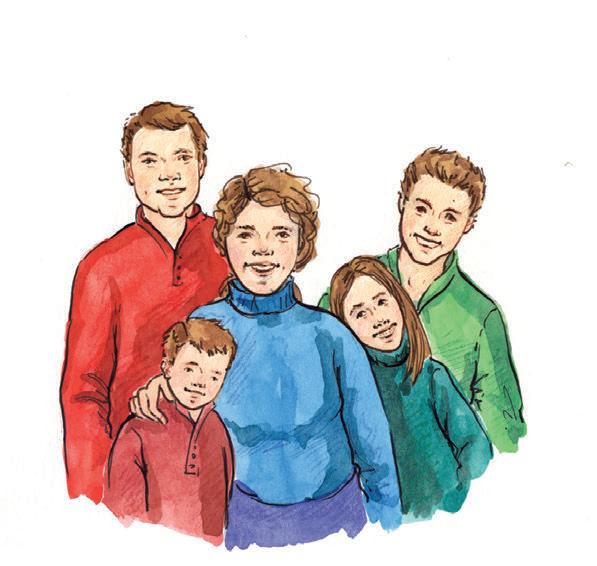
They enjoy many of the benefits of being citizens of the United States, such as a free public education for their children, the right to free speech, the right to run for public office, and the opportunity to earn a comfortable living. But being a U.S. citizen isn’t just about rights and privileges. It is also a responsibility. The Citizens try to be good citizens every day, at home, in school, and at work.
On a regular day, John Citizen leaves his house and gets into his car for the drive to his office. As he drives, John carefully obeys local laws, such as not driving faster than the speed limit and stopping to let pedestrians cross the street in a crosswalk. Every day, John also obeys more important laws, such as not robbing a bank, not destroying someone else’s property, and not stealing a car.
The Preamble to the U.S. Constitution mentions the need to establish justice. Obeying federal, state, and local laws is one of the responsibilities of citizenship. Laws keep governments and communities running smoothly. They prevent individual citizens from doing whatever they like, actions that might harm other citizens and interfere with their rights. By respecting the laws established at all levels of government, John is fulfilling one of the duties of citizenship.
Bu hikaye Cobblestone American History Magazine for Kids dergisinin May/June 2023 sayısından alınmıştır.
Start your 7-day Magzter GOLD free trial to access thousands of curated premium stories, and 9,500+ magazines and newspapers.
Already a subscriber ? Giriş Yap
Bu hikaye Cobblestone American History Magazine for Kids dergisinin May/June 2023 sayısından alınmıştır.
Start your 7-day Magzter GOLD free trial to access thousands of curated premium stories, and 9,500+ magazines and newspapers.
Already a subscriber? Giriş Yap
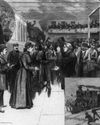
nellie Bly Journalist
nellie Bly's first newspaper articles appeared in print when she was just 20 years old.

Arabella Mansfield -Lawyer
Arabella Mansfield started out life as Belle Babb (1846-1911). She grew up in a Midwest family that valued education. In 1850, her father left to search for gold in California. He died in a tunnel accident a few years later.

Sarah Josepha Hale Editor
Long before Vogue or Glamour caught women's attention, Godey's Lady's Book introduced the latest fashions.

Louise Blanchard Bethune - Architect
Louise Blanchard Bethune (1856-1915) showed early promise in math. Lucky for her, her father was the principal and a mathematics teacher in a school in Waterloo, New York. Instead of going to school, Louise's father taught her at home until she was 11 years old. She also discovered a skill for planning houses. It developed into a lifelong interest in architecture and a place in history as the first professional female architect in the United States.
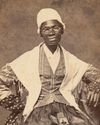
Sojourner Truth Speaker
There was a time when slavery wastes abolished the institution over a number of decades. New York abolished slavery in 1827. Isabella Baumfree (c. 1797-1883) was born enslaved in Hurley, New York. When she was nine, she was taken from her parents and sold. She then was sold several more times. Some of her owners were cruel and abused her. During that time, she had several children.
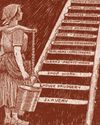
Getting Started
In this editorial cartoon, a young 19th-century woman must overcome the obstacle of carrying a heavy burden while climbing a multirung ladder before she can achieve \"Equal Suffrage.\"
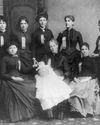
Leonora M. Barry - Investigator
When Leonora M. Barry (1849-1923) was a young girl, her family left Ireland to escape a famine. They settled in New York. Barry became a teacher. In 1872, she married a fellow Irish immigrant. At that time, married women were not allowed to work. So, Barry stayed home to raise their three children.

Finding a New Path
For many Americans, this month's mystery hero represents the ultimate modern trailblazer. She is recognized by just her first name.

The Grimké Sisters Abolitionists
Every night, Dinah was supposed to brush the E hair of her mistress, Sarah Moore Grimké (1792-1873). But one night, 12-year-old Sarah stopped Dinah. She wanted to help Dinah instead. They had to be quiet so they wouldn't get caught. It was 1804 in Charleston, South Carolina. The Grimkés were among Charleston's major slaveholding families. Strict laws regulated the behavior of both master and enslaved people.
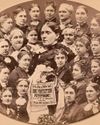
Frances Willard Leader
During Frances Willard's lifetime (1839-1898), she was the best-known woman in America: She headed the largest women's organization in the worldthe Woman's Christian Temperance Union (WCTU). In that role, her abilities shone as a social activist, a dynamic speaker, and a brilliant organizer. She educated women on how to run meetings, write petitions, give speeches, and lobby state and federal legislators.
